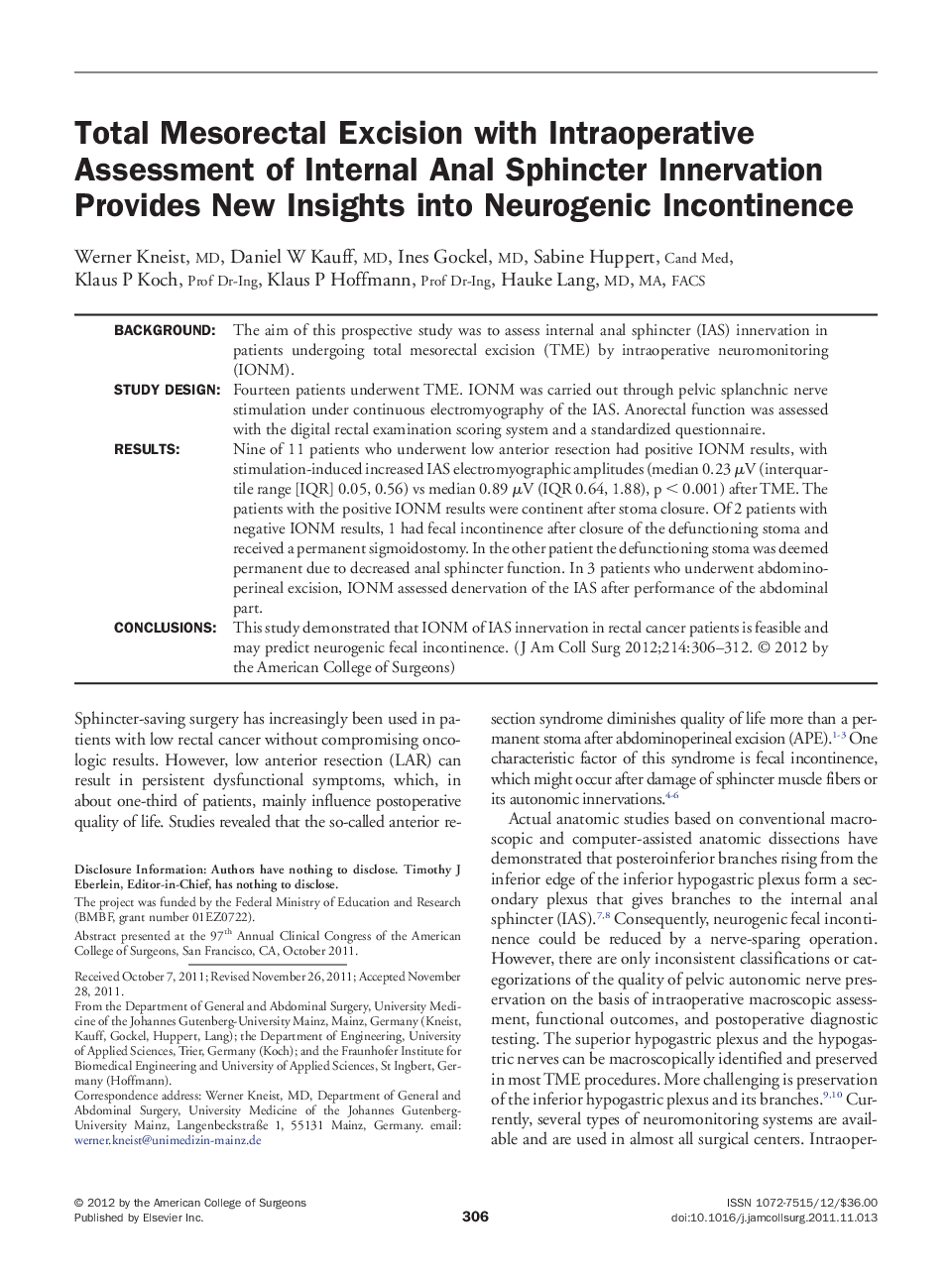| Article ID | Journal | Published Year | Pages | File Type |
|---|---|---|---|---|
| 4293825 | Journal of the American College of Surgeons | 2012 | 7 Pages |
BackgroundThe aim of this prospective study was to assess internal anal sphincter (IAS) innervation in patients undergoing total mesorectal excision (TME) by intraoperative neuromonitoring (IONM).Study DesignFourteen patients underwent TME. IONM was carried out through pelvic splanchnic nerve stimulation under continuous electromyography of the IAS. Anorectal function was assessed with the digital rectal examination scoring system and a standardized questionnaire.ResultsNine of 11 patients who underwent low anterior resection had positive IONM results, with stimulation-induced increased IAS electromyographic amplitudes (median 0.23 μV (interquartile range [IQR] 0.05, 0.56) vs median 0.89 μV (IQR 0.64, 1.88), p < 0.001) after TME. The patients with the positive IONM results were continent after stoma closure. Of 2 patients with negative IONM results, 1 had fecal incontinence after closure of the defunctioning stoma and received a permanent sigmoidostomy. In the other patient the defunctioning stoma was deemed permanent due to decreased anal sphincter function. In 3 patients who underwent abdominoperineal excision, IONM assessed denervation of the IAS after performance of the abdominal part.ConclusionsThis study demonstrated that IONM of IAS innervation in rectal cancer patients is feasible and may predict neurogenic fecal incontinence.
